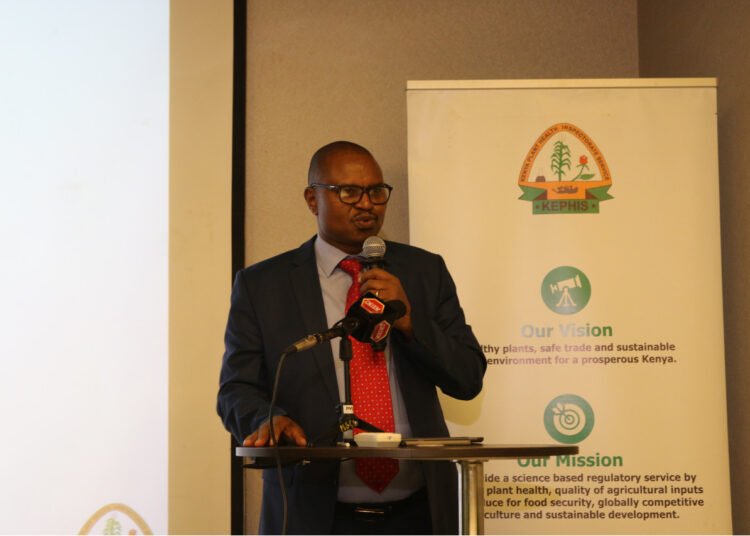Kenya Plant Health Inspectorate Service (KEPHIS) has held a stakeholders validation workshop on its draft Strategic Plan 2023-2027. Over 50 stakeholders gathered in Nairobi where the Corporation led by the Board of Directors led process in interrogating the document.
In the next five years, the Strategic Plan will focus on Plant Heath, Seed Quality Assurance and Plant Variety Protection, Trade Facilitation, Institutional Capacity and the Quality of Agricultural Inputs and Produce.
Board Chairman Hon. Joseph M’eruaki stated that the Government of Kenya through its economic Blueprint, Vision 2030, seeks to propel the country to achieving economic development with an average 10% growth rate that will enhance the country’s status to a middle-income economy.
The Bottom-up Economic Transformation Agenda (BETA) by the government also seeks to propel Kenya’s economic growth further through the five key pillars of Agriculture, MSMEs, Affordable Housing, Digital & Creative Economy and Health.
“The Agriculture sector remains the main catalyst of Kenya’s economic growth and contributes about 75% of industrial raw materials, 60% of export earnings, 65% of Kenya’s total exports by volume and 60% of employment. According to the Economic Survey 2022 report (KNBS), agricultural sub-sectors, including Tea and Horticulture rank among the highest foreign exchange earners in the country realizing KShs.163.3Bn and KShs 152.Bn respectively. At the domestic level, the need for sustained agricultural productivity is crucial in ensuring food security for the country as well as creating income and wealth for our farmers. In all this, KEPHIS remains pivotal, “he said.
MD Prof. Theophilus Mutui highlighted the notable achievements of the Corporation in it’s more than 25 years of existence including a review of the legal framework, enhanced ICT infrastructure and use of technology through integration of export certification system with the International Plant Protection Convention(IPPC)e-phyto hub, implementation of Enterprise Resource Planning (ERP), and Integrated Export Import certification system (IEICS), Seed Certification & Plant Variety Protection System (SCPVP), maintained and expanded scope of accreditation of laboratories, certification to Quality Management Systems (QMS), Information Security Management Systems (ISMS), compliance with market requirements to maintain and open new markets, expanded its service delivery by opening new offices, ease of doing business through operating in 24-hour system, integrated KenTrade facilitation system, operationalization of the One Stop Border Post and capacity building of staff and clients.
Climate change which featured prominently in the session a key area that has taken centre stage in recent years. This has therefore necessitated the development and release of climate smart varieties.































































